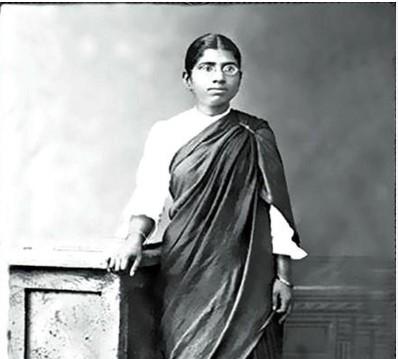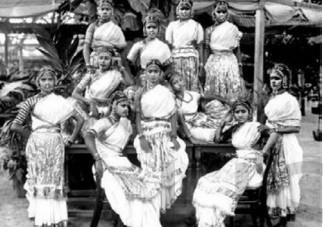(MENAFN- NewsIn.Asia)
By T Ramakrishnan/The Hindu
Chennai, September 15: Tamil Nadu is no stranger to public discourses on culture, traditions, customs and societal norms. On some occasions, the discourses did not lead to any substantive outcome other than creating controversies. On some other occasions, they succeeded in addressing the problem effectively. One such success story pertains to the abolition of the Devadasi system (the system of dedication of girls to temples). Muthulakshmi Reddy (1886-1968) is rightly given the credit for this, as she had relentlessly carried on the campaign amid opposition from certain sections of society including influential political leaders.
By the time Muthulakshmi Reddy began her campaign against the system in June 1927, she had some firsts to her credit – the Indian woman medical graduate in the Madras presidency in 1912; the woman member of the Legislative Council in 1926 and the woman Deputy President of the Council a year later. The trigger for her to launch the campaign was a letter movingly written by 13-year-old Shanpakvalli before ending her life. The girl had wanted, in the words of Muthulakshmi as published in The Hindu on June 22, 1927,“to escape the horrors and misery of a prostitute's life.” Born in a family of Devadasis, Shanpakvalli had earlier resisted her grandmother's attempts for the“dedication ceremony” of hers. The letter was published by Tamil Nadu, a Tamil weekly, for which a prominent Congress leader, P. Varadarajulu Naidu, was the Editor.
ADVERTISEMENT
According to 'Muthulakshmi Reddy: path-breaking woman in social reform and medicine' authored by V.R. Devika in 2022, two women had influenced Muthulakshmi in her battle against the pernicipractice. They were her mother, Coviloor Chandrammal and Muvalur Ramamirthammal. Belonging to the community of Devadasis, both revolted against the system. Several other developments in Tamil Nadu and other parts of south India including repeated appeals of the Madras Hindu Social Reform Association had only strengthened Muthulakshmi's resolve. As early as April 1909, the government of the Mysuru princely state had prohibited Devadasis from every kind of service that they had been providing at temples.

Dr.Muthulakshmi Reddy
Talking of the relationship between Devadasis, derived from the term,“devar adiyar” (servants of God), her biographer, Ms. Devika, points out:“They served in the temple and their duties included fanning the deity with chamaras, (fans made of Tibetan oxtail hair), and carrying the sacred light of kumbharathi. They possessed the right to sing and dance before the idol during certain times of worship, or when the deity was taken out in procession on the main streets. The temple provided accommodation and a modest remuneration.”
The presence of patrons for Devadasis had naturally led to degeneration of the system over the years. A host of factors including economic policies of the British Raj had paved the way for the shrinking size of patrons. However, Muthulakshmi viewed the system much more critically. Her statement, as published by The Hindu on October 17, 1927 after the presentation of her resolution and Bill against the system, mentioned how girls were“purchased for a price.”

Devadasi dancers: 1926
She had also, according to Ms. Devika, seen that several women, who were dedicated, were not entitled to receive any remuneration from the temples. The remuneration was also extremely meagre. There was housing but several generations lived under the same roof. She wanted women to explore other opportunities for earning. Education, she said, was what would free them, the biographer says. The anti-Devadasi system campaigner had also asked for lands to be granted to those women who were otherwise entitled to get the economic benefits from the temples.
S. Anandhi, professor of the Madras Institute of Development Studies in her paper published in 2008, recorded that Muthulakshmi“continuously” portrayed Devadasis as“victims of traditions” who were“ignorant of healthy living” since they had been trained only“to lead an immoral life, to lead a life of promiscuity, [and] a life leading to the disease of the mind and the body...” At present, Prof. Anandhi is working on a political biography of the principal antagonist of the system.
Muthulakshmi, who found support from the Isai Vellalar Sangam in Thanjavur and Mayiladuthurai, and Devadasis of Kochi in her campaign, had, however, encountered stiff opposition, from within the Congress party. Notwithstanding Mahatma Gandhi's support for Muthulakshmi's Bill, two Congress stalwarts, S. Satyamurti and C. Rajagopalachari (Rajaji), were against the legislative measure. Even sections of Devadasis such as Duraikannu Ammal and Bengaluru Nagarathnamma were not for the abolition Bill. Her critics had argued against the ban, citing several reasons such as“the loss of a culture” and“snatching hereditary art from Devadasis.”
It was no wonder that Muthulakshmi's initial attempts did not succeed. The arrest of Gandhi during the 1930 Salt Satyagraha had compelled Muthulakshmi to quit the legislature. After the country gained Independence, the Madras Legislative Assembly, on November 26, 1947, adopted the Bill to prevent the dedication of women as Devadasis. After presenting the select committee's report to the House, P. Subbaroyan, Home Minister in the Cabheaded by Omandur P. Ramaswami Reddiar of the Congress, traced the genesis of the measure and said the State owed“a great deal” to Muthulakshmi who had done much for nearly a quarter of a century for eradicating the evil.
Ms. Devika, in her biography, observes that“the bill was passed with relative ease because it did not involve any kind of criminal prosecution nor did it require governmental interference in family relationships.” Despite the passage of over 75 years, the saga of Muthulakshmi Reddy's campaign against the Devadasi system remains an inspiring account.
END